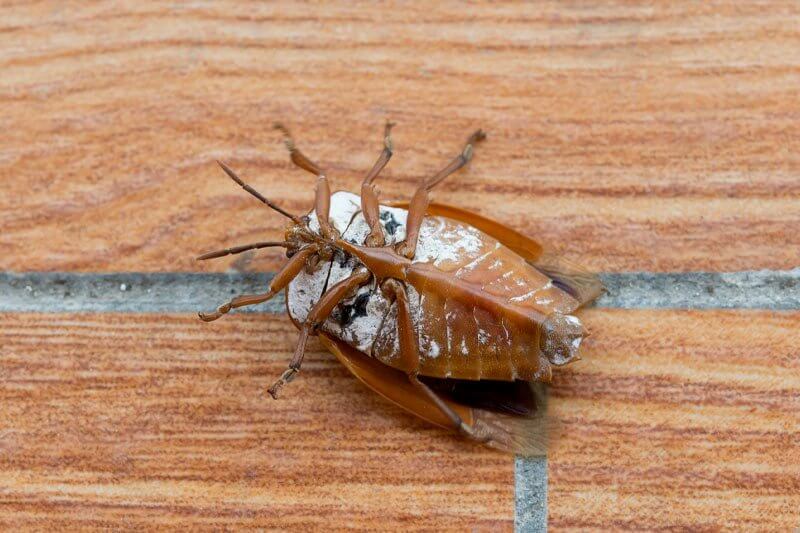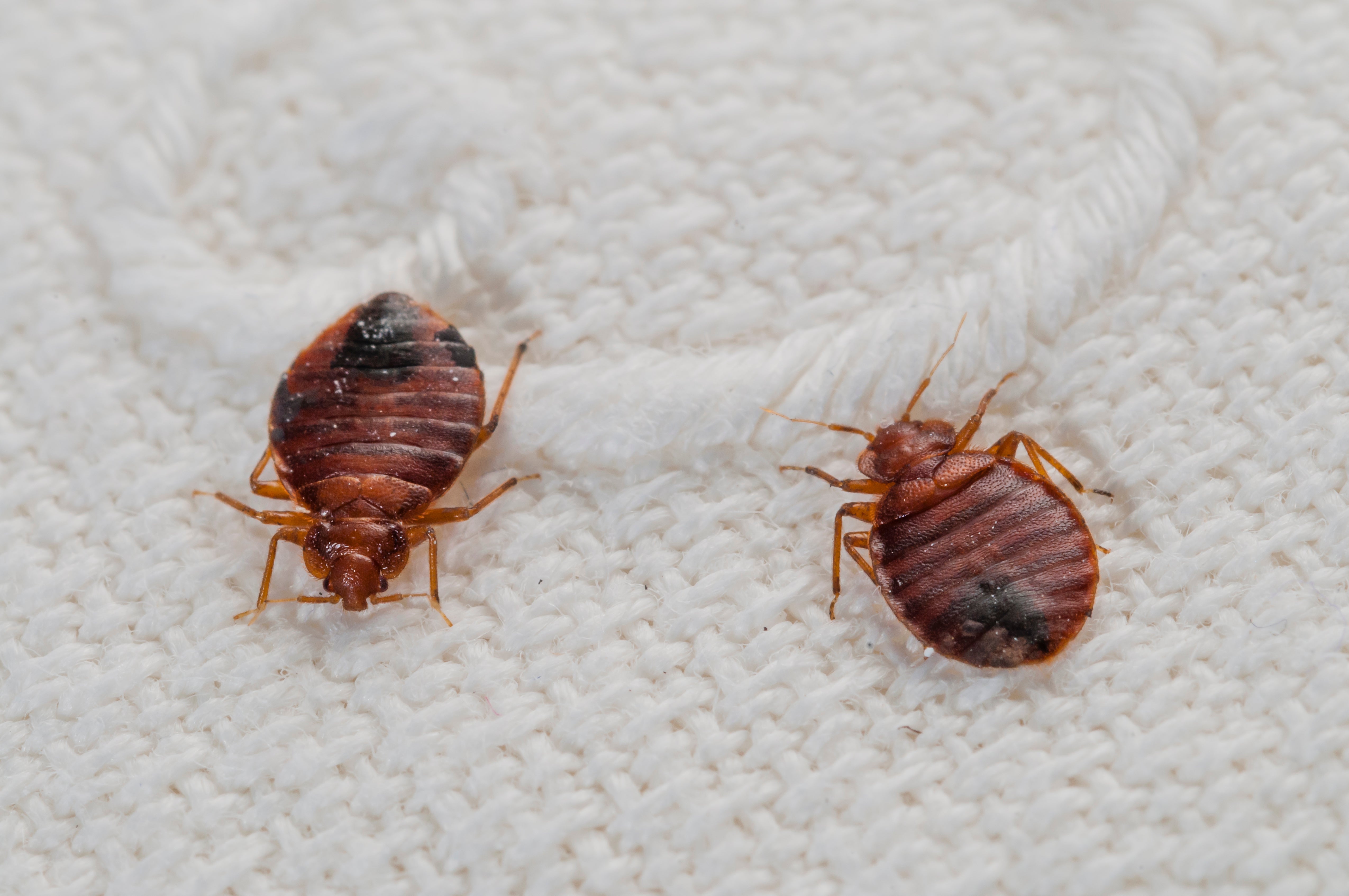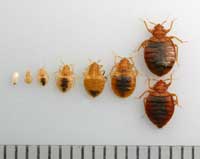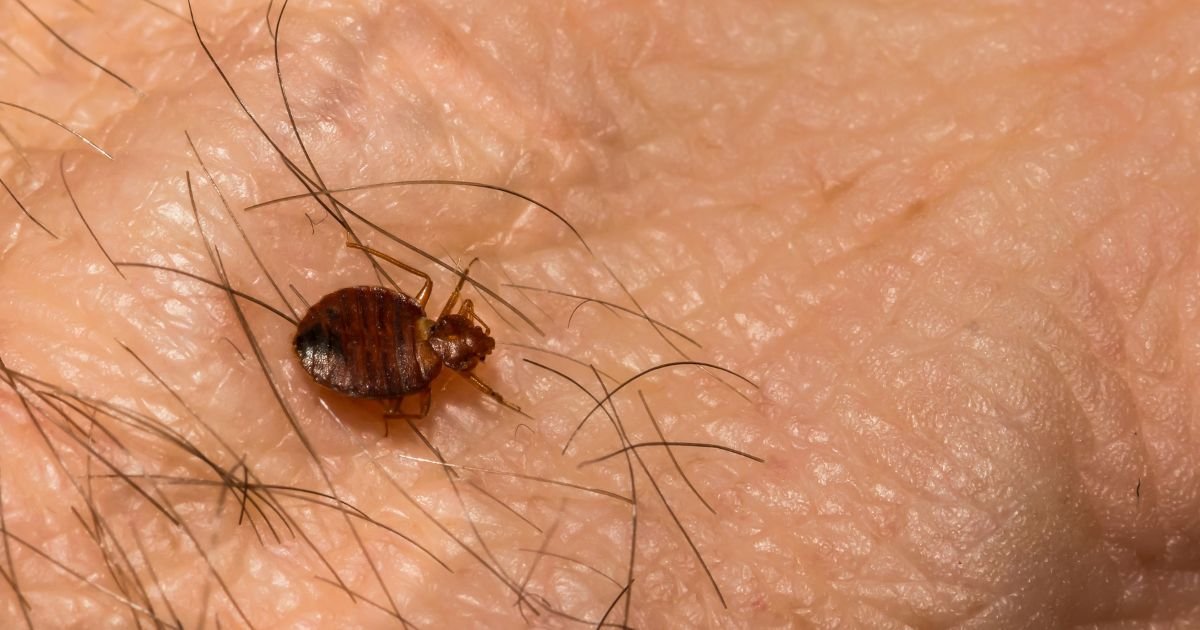Bed bugs can die without feeding in about 20 to 400 days, depending on temperature and humidity. These pests are resilient but will eventually perish without a blood meal.
Dealing with a bed bug infestation can be a persistent and challenging problem that many homeowners face. These tiny insects are known for their ability to go without feeding for long periods of time, which can make eliminating them a difficult task.
Understanding the lifespan of bed bugs without feeding and how to effectively eradicate them is crucial for successful pest control. We will explore the factors that influence how long bed bugs can survive without feeding, as well as effective strategies for getting rid of these troublesome pests. By the end, you will have a comprehensive understanding of the lifecycle and behaviors of bed bugs, enabling you to tackle any infestation with confidence.

Credit: privateexterminator.com
Life Cycle Of Bed Bugs
Bed bugs are resilient pests that can survive for prolonged periods without a blood meal. Understanding the life cycle of bed bugs is crucial to managing and eradicating infestations effectively. From the egg stage to adult maturation, each phase plays a significant role in the persistence of these intrusive insects within a household.
Egg Stage
Bed bugs initially begin their life cycle as eggs, typically laid in secluded areas close to their human hosts. These tiny, pearl-white eggs measure about 1mm in length and are often nestled within cracks and crevices, making them particularly challenging to spot and eliminate.
Nymph Stages
After approximately a week, the eggs hatch into nymphs, which undergo several molting stages as they progress towards adulthood. Nymphs are translucent and become reddish-brown after feeding on blood. During this phase, they require regular blood meals for growth and development.
Adult Stage
As nymphs reach maturity, they transform into adult bed bugs. At this point, their bodies elongate and darken, assuming a distinctive reddish-brown hue. Adult bed bugs can live for several months without feeding, making them exceedingly resilient and challenging to eliminate.
“`I hope this helps! Let me know if you need anything else!Feeding Habits Of Bed Bugs
Understanding the feeding habits of bed bugs is essential in controlling their infestation. These persistent pests rely on blood meals for survival, and their feeding habits impact various aspects of their life cycle.
Frequency Of Feeding
Bed bugs require blood meals to reproduce and molt. They typically feed every 5 to 10 days, depending on environmental conditions and the availability of hosts. Frequent feeding enables them to develop and reproduce at a rapid pace, making infestations challenging to eliminate. Their ability to survive prolonged periods without feeding further complicates eradication efforts.
Effects Of Feeding On Lifespan
The frequency and quality of blood meals directly affect the lifespan of bed bugs. Regular feeding allows them to live longer, reproduce more, and thrive in their environment. Conversely, prolonged periods without feeding can significantly shorten their lifespan, hindering their ability to infest and spread to new areas.
Factors Affecting Bed Bug Survival Without Feeding
Temperature: Bed bugs can survive longer in warmer temperatures.
Humidity: High humidity levels can extend a bed bug’s lifespan without feeding.
Age of the bed bug: Younger bed bugs can survive longer without feeding compared to older ones.

Credit: www.scientificamerican.com
Research On Bed Bugs’ Survival Period Without Feeding
Research has shown that bed bugs can survive for extended periods without feeding, a fact that poses unique challenges for pest control measures. Understanding the survival duration of bed bugs without access to a blood meal is crucial for effective pest management strategies.
Study Findings On Survival Duration
Studies have shed light on how long bed bugs can survive without feeding, providing valuable insights for pest control efforts. According to research conducted by scientists at the University of Kentucky, adult bed bugs can survive for approximately five to seven months without a blood meal, under optimal conditions.
Another study published in the Journal of Medical Entomology found that bed bug nymphs, which are the immature stages of the insect, can survive for even longer periods without feeding. Nymphs can go without food for up to four months, making them particularly resilient and difficult to eradicate.
These research findings highlight the remarkable resilience and survival capabilities of bed bugs, indicating the need for comprehensive and persistent pest control strategies to effectively eliminate infestations.
Implications For Pest Control
The knowledge gained from studies on bed bugs’ survival period without feeding has important implications for pest control professionals and homeowners alike. Understanding the extended survival duration of bed bugs enables pest control experts to design more effective treatment plans that account for the resilience of these pests.
It also emphasizes the importance of comprehensive inspection and treatment of infested areas, as even if bed bugs appear to be dormant, they may still be able to survive and reproduce in the absence of a blood meal. This knowledge underscores the need for ongoing monitoring and preventive measures to prevent reinfestation.
Furthermore, the extended survival period of bed bugs without feeding highlights the necessity of professional pest control interventions rather than relying solely on DIY solutions. Pest control experts have the knowledge, experience, and resources to implement targeted treatment plans that can effectively eliminate infestations and prevent their recurrence.
In conclusion, research on bed bugs’ survival period without feeding has provided valuable insights for pest control professionals and homeowners. Understanding the resilience and extended survival capabilities of these pests is crucial for devising effective treatment strategies and preventing reinfestation.
Methods To Eliminate Bed Bugs
Having bed bugs in your home can be a frustrating and stressful experience. Not only do these pests cause discomfort and sleepless nights, but they can also spread quickly and become an infestation. If you’re dealing with a bed bug problem, it’s important to know effective methods to eliminate them. In this post, we will discuss two main approaches: chemical treatments and non-chemical methods.
Chemical Treatments
Chemical treatments are commonly used by professionals to eradicate bed bugs. These treatments involve the application of insecticides and other chemicals that are specifically designed to kill bed bugs.
There are different types of chemical treatments available:
- Insecticide sprays: These sprays are directly applied to areas where bed bugs are hiding, such as cracks, crevices, and bed frames. They work by killing bed bugs on contact.
- Dust insecticides: These powders are sprinkled in infested areas and can remain effective for a long time. Bed bugs that come into contact with the dust will carry it back to their hiding places, eventually leading to their demise.
- Insecticide bombs: Also known as “bug bombs” or “foggers,” these release a fog or mist of insecticide into a room. They can cover a large area and reach hidden spaces, but they should be used with caution due to the potential health risks associated with their improper use.
It’s important to note that chemical treatments should be done by trained professionals, as they have the knowledge and experience to effectively and safely use these products. Additionally, it’s crucial to follow the instructions provided by the manufacturer and take all necessary precautions to protect yourself, your family, and pets.
Non-chemical Methods
If you prefer non-chemical treatments or want to supplement chemical treatments, there are several effective options available:
- Heat treatment: Bed bugs cannot survive in extreme temperatures. Heat treatment involves raising the temperature of the infested area to a level that is lethal for bed bugs but safe for humans and pets. Professional heat treatment providers use specialized equipment to heat the infested area quickly and thoroughly.
- Steam treatment: Steam treatment is another non-chemical method for killing bed bugs. The high temperature of the steam destroys bed bugs and their eggs. Steam can be applied to various surfaces, such as mattresses, furniture, and carpets.
- Vacuuming: Regularly vacuuming your home can help reduce the population of bed bugs. Be sure to focus on areas where they tend to hide, such as cracks, corners, and seams of mattresses. After vacuuming, seal the contents of the vacuum cleaner in a plastic bag and dispose of it immediately.
- Encasements: Using bed bug-proof encasements for your mattress, box spring, and pillows can help prevent bed bugs from entering or escaping. These encasements are made of tightly woven fabric that bed bugs cannot penetrate.
- Clutter removal: Decluttering your home can eliminate hiding spots for bed bugs and make it easier to detect and treat infestations.
When choosing between chemical and non-chemical methods, it’s important to consider factors such as the severity of the infestation, the extent of the bed bug problem, and the presence of pets or people with allergies or sensitivities. Consulting with a professional pest control company can help you determine the most suitable method for your situation.
Preventive Measures To Avoid Bed Bug Infestations
To prevent bed bug infestations, it’s important to regularly inspect and clean your living spaces. You should also seal any cracks or crevices and eliminate clutter, which can provide hiding spots for bed bugs. Bed bugs can survive for several months without a blood meal, so it’s crucial to be proactive in preventing infestations.
Regular Inspection
Clutter Reduction
“`Preventive Measures to Avoid Bed Bug Infestations:Regular inspection of bedding and furniture is crucial. Keep clutter reduced to minimize hiding spots for bed bugs.Regular inspection is essential to detect early signs of bed bugs. Reduce clutter to eliminate hiding spots for bed bugs.Regular inspection allows for early detection of bed bugs. Clutter reduction minimizes hiding spots and breeding grounds for bed bugs.Regular inspection helps identify bed bug infestations promptly. Reducing clutter eliminates hiding spots which might attract bed bugs.Engage in thorough and consistent inspections in living spaces. Maintain cleanliness to discourage bed bug infestations.Regularly inspect your bedding, furniture, and living spaces. Declutter to limit hiding spots where bed bugs may thrive.Inspect regularly to catch bed bugs early on. Declutter to reduce bed bug hiding places.“`
Credit: ipm.ucanr.edu
Frequently Asked Questions For How Long Does It Take Bed Bugs To Die Without Feeding?
How Long Can Bed Bugs Survive Without Feeding?
Bed bugs can survive for several months without feeding, depending on the environmental conditions. In general, an adult bed bug can survive without a blood meal for up to six months. However, nymphs (young bed bugs) and eggs are more vulnerable and can only survive for a few weeks without feeding.
How Often Do Bed Bugs Need To Feed?
Bed bugs generally feed once every five to ten days, depending on factors such as temperature, humidity, and availability of hosts. However, they can survive for longer periods without feeding, especially when their preferred hosts are not present or if environmental conditions are unfavorable.
Can Bed Bugs Die Without Feeding?
Yes, bed bugs can die without feeding, but their survival time varies. While adult bed bugs can survive for months without a blood meal, nymphs and eggs are more fragile and can only survive for weeks without feeding. It’s important to note that bed bugs are resilient pests and can quickly multiply if favorable conditions are present.
What Happens If Bed Bugs Can’t Feed For A Long Time?
If bed bugs are unable to feed for an extended period, they will become weaker and less active. Their ability to reproduce may also be compromised. However, bed bugs are resilient insects, and even prolonged periods without feeding may not eliminate an infestation entirely.
Proper treatment and pest control methods are necessary to eradicate bed bugs completely.
Conclusion
After understanding the lifespan of bed bugs without feeding, it’s clear that they are resilient pests. Taking proactive measures is crucial to effectively combat infestations. By knowing their survival timeframe, you can strategize to eliminate them promptly and prevent further spread.
Stay informed and prepared!
Related posts:

I’m MD Tanvir, and I bring years of expertise gained from working closely with pest control companies to the forefront. My journey in the industry has inspired me to launch Bug Battler, a platform aimed at equipping people with the know-how to combat pests autonomously. Through Bug Battler, I aim to empower individuals with practical insights to tackle pest infestations effectively.

